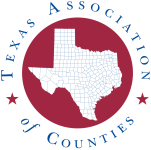Texas Judicial Academy Frequently Asked Questions
Education and Training Collections of the most common questions and brief, easy-to-understand answers.
Continuing Education Requirements
Education and Training We have partnered with several major Texas universities as co-sponsors of our programs to help you stay up-to-date with your required Continuing Education (CE) hours.
What are the duties of all Texas county officials?
Education and Training County officials are your neighbors - they pay the same taxes you pay and drive the same roads you do. It's a good system that leaves your neighbors in charge of the decisions that determine how much you pay in taxes to support your roads, your court system, your local criminal law enforcement and your public records.
Education and Training County Auditors/CPA's are required to attain 40 hours during each two-year appointment.
Education and Training Constables are required to attain 40 hours biannually, 20 hours of which must be in civil process.
Education and Training Justices of the peace are required to obtain 80 hours during their first year in office and 20 hours annually thereafter.
Education and Training A county assessor-collector must successfully complete 20 hours of continuing education before each anniversary of the date on which the county assessor-collector takes office.
Education and Training Texas Commission on Law Enforcement (TCOLE) may require any sheriff who is not a commissioned peace officer to attend up to 40 hours of education within two to four years of taking office.
Education and Training Texas district clerks are required to attain 20 hours during each calendar year that begins after election or appointment.
Education and Training A county treasurer must successfully complete an introductory course of instruction in the performance of the duties of county treasurer.
Education and Training Texas county clerks are required to attain 20 hours during each calendar year that begins after election or appointment.
Education and Training Texas district attorneys are required to attain 15 hours every 12-month period, with that 12-month period being based on your birth month, ten hours must be earned in a formal classroom setting and up to five hours may be earned in self-study.

